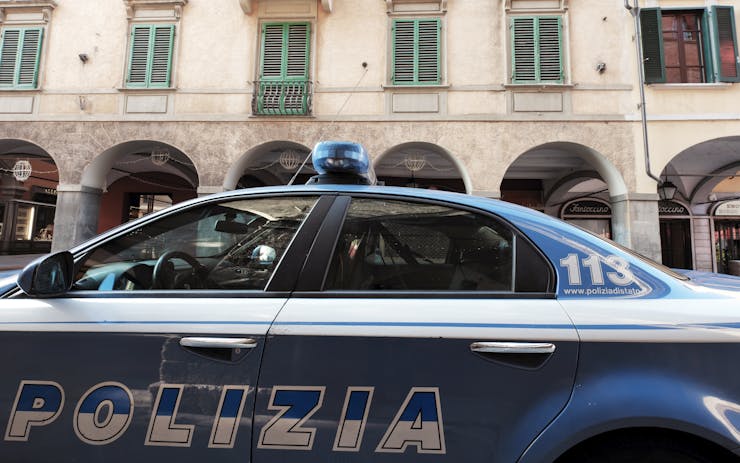Italian law enforcement groups are throwing their weight behind a parliamentary bill to legalize cannabis in the country, building momentum for the effort to create Europe’s first fully legal adult-use market. Both the national anti-Mafia agency and the country’s police union have come out in favor of the proposal, which is set for further debate in the Italian parliament later this month.
If it passes, the bill would allow Italians to grow up to five cannabis plants, keep up to 15 grams of dried flower at home, and carry up to five grams with them. Cannabis would be sold in state-licensed stores, while non-commercial cannabis social clubs would allow up to 50 members to swap and share the cannabis they grow. The proposal has sparked an unprecedented public debate on the Italian peninsula, with various experts, politicians, and members of the law enforcement community taking an array of positions.
Italy’s bill has progressed further than any current legalization effort in Europe. A similar bill was introduced into parliament in Germany last year, but it has stagnated as lawmakers there focus instead on a bill to create a robust medical cannabis market.
The most recent endorsement for the Italian bill came last month from the largest and most influential police workers’ union, SIULP. The group’s general secretary, Felice Romano, expressed his support for the proposal in no uncertain terms.
“These are substances that today are used for therapeutic purposes, and cannabis is cultivated by the Italian army,” he said. “If cannabis were sold through a legal framework, it would be less dangerous and would not contain chemical pollutants and additives that do more damage than the active ingredients.”
Support from Italian police bolsters the pro-legalization stance of Direzione Nazionale Antimafia, (DNA) the country’s anti-Mafia agency, which has taken a firm stance against prohibition. In April, Franco Roberti, Italy’s top prosecutor and head of the DNA, said decriminalizing cannabis would strike a blow to Islamic State militants and Italian mobsters alike, as the two entities have teamed up to smuggle hash into Italy. The interview made headlines around the world.
Legalizing cannabis would lead to “a revival of the Italian justice system,” the DNA declared in a letter to the government in June. The document notes three important facts in support of legalization:
- International and national criminal organizations — especially Neapolitan Camorra and the Calabrian ‘Ndrangheta — have a monopoly on the Italian cannabis market.
- Afghanistan is the second largest producer of cannabis bound for Italy, with proceeds financing terrorist groups like IS.
- Italian law enforcement, although successful in curbing the trade of hard drugs, hasn’t managed to influence cannabis demand. Their efforts are widely considered a waste of money and resources.
Yet despite seeing advantages in a legal cannabis system, the anti-Mafia agency remains opposed to both personal and collective cannabis cultivation. Such unlicensed grows, the DNA argues, could represent a loophole for the Mafia to infiltrate the market.
Carla Rossi, a professor of medical statistics and vice president of the Italian Council for Social Sciences, applauded the recent shows of support for egalization. “The [current] law is a failure. It’s necessary to legalize the market that now is in the hands of criminal organizations,” Rossi said. “The DNA has shown a science-driven, pragmatic approach that is not ideologically biased. This ethical, science driven approach is almost absent in Italy, except at DNA and with some scientists who are very known at the international level. But as the saying goes, nobody is a prophet in his fatherland.”





